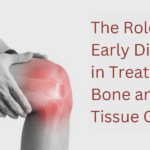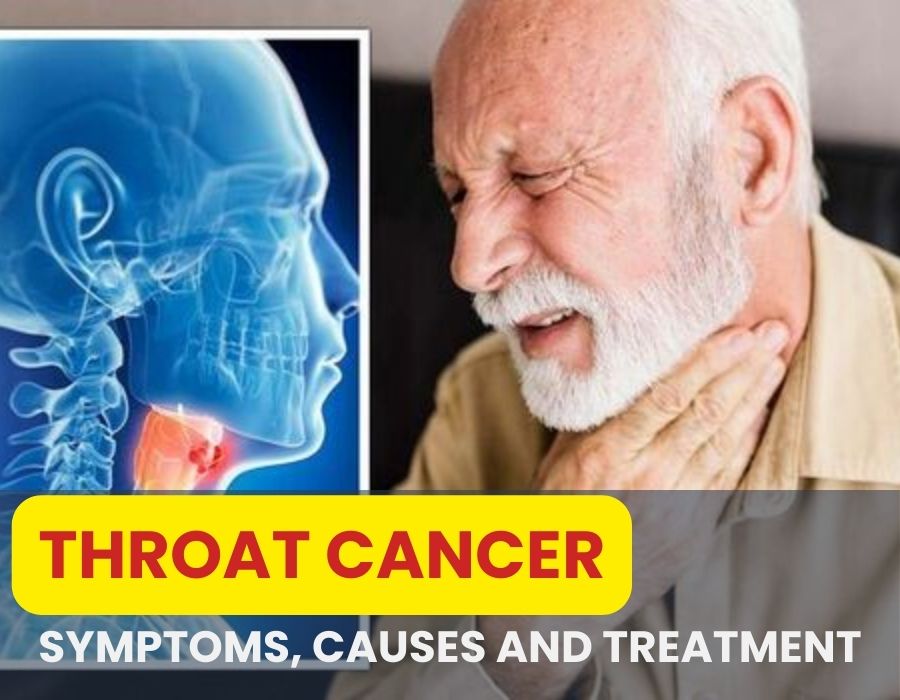What is Throat Cancer?
Throat cancer refers to the development of cancerous cells in the throat, which is the muscular tube that begins behind the nose and ends in the neck. The throat is divided into several parts, including the pharynx which has three parts: nasopharynx, oropharynx, and laryngopharynx and larynx (voice box). Cancer can develop in any of these areas, leading to different types of throat cancer.
How Many Types of Throat Cancer?
- Nasopharyngeal Cancer: This type occurs in the nasopharynx, the upper part of the throat behind the nose.
- Oropharyngeal Cancer: This cancer develops in the oropharynx, which includes the base of the tongue.
- Hypopharyngeal cancer: Also known as laryngopharyngeal cancer, it affects the hypopharynx, the lower part of the throat that surrounds the larynx and esophagus.
- Laryngeal cancer: This cancer forms in the larynx or voice box.
What is Common Symptoms Throat Cancer?
- Cough: A cough that doesn’t go away and is not related to a cold or other respiratory infection.
- Sore Throat: A persistent sore throat that doesn’t improve with typical treatments.
- Difficulty Swallowing:-Difficulty or pain while swallowing, and the sensation of something stuck in the throat.
- Change in the voice: Changes in the pitch or quality of the voice that persist for an extended period.
- Ears Pain: Pain in the ears that is not related to an ear infection but may be associated with throat cancer.
- Weight Loss: Significant weight loss without an apparent cause.
- Lump: Swelling or a palpable lump in the neck that may indicate the spread of cancer to the lymph nodes.
- Persistent Fatigue: A constant feeling of tiredness or weakness.
Throat Cancer Causes Overview
Throat cancer is a complex condition, and its exact cause is often multifactorial. Several factors may contribute to the development of throat cancer, and individuals may have a combination of these risk factors. Some common causes and risk factors for throat cancer include:
- Tobacco Use: Smoking cigarettes, cigars, or pipes, as well as using smokeless tobacco, significantly increases the risk of developing throat cancer. The carcinogens in tobacco can damage the cells lining the throat.
- Excessive Alcohol Consumption: Heavy and prolonged alcohol consumption is a significant risk factor for throat cancer. The combination of tobacco and alcohol use further increases the risk.
- Human Papillomavirus (HPV) Infection: Certain strains of HPV, particularly HPV-16 and HPV-18, have been linked to an increased risk of oropharyngeal cancers, which include some types of throat cancer.
- Poor Diet: A diet low in fruits and vegetables may contribute to an increased risk of throat cancer. These foods contain antioxidants and other compounds that help protect cells from damage.
- Gastroesophageal Reflux Disease: Chronic acid reflux, which can cause irritation and inflammation of the esophagus, may contribute to the development of throat cancer.
- Occupational Exposures: Exposure to certain workplace hazards, such as asbestos, nickel, and wood dust, may increase the risk of throat cancer.
- Age and Gender: Throat cancer is more common in older individuals, and men are generally at a higher risk than women.
- Genetics: While most cases of throat cancer are associated with lifestyle factors, there may be a genetic predisposition in some cases.
Throat Cancer Available Treatment?
The treatment of throat cancer depends on various factors, including the type and stage of cancer, as well as the individual’s overall health. A comprehensive treatment plan may involve a combination of the following approaches:
- Surgery: Surgical intervention may be recommended to remove the cancerous tumor. The extent of surgery depends on the location and size of the tumor. In some cases, surgery may involve removing part or all of the voice box (laryngectomy) or other affected areas in the throat.
- Radiation Therapy: High-energy beams, such as X-rays or protons, are directed at the cancerous cells to destroy or shrink them. Radiation therapy may be used as the primary treatment or in combination with surgery or chemotherapy.
- Chemotherapy: Drugs are administered either orally or intravenously to kill or slow the growth of cancer cells. Chemotherapy is often used in combination with other treatments, such as surgery or radiation therapy.
- Targeted Therapy: This type of therapy involves using drugs that specifically target certain molecules involved in cancer growth. Targeted therapy is often used when cancer has specific genetic or molecular characteristics.
- Immunotherapy: Immunotherapy stimulates the body’s immune system to recognize and attack cancer cells. This approach is becoming increasingly important in the treatment of certain types of cancers, including throat cancer.
- Rehabilitation and Supportive Care: After treatment, rehabilitation may be necessary to help individuals regain normal functions, such as speech and swallowing. Supportive care, including nutritional support and management of side effects, is crucial to improve the overall quality of life during and after treatment.
The choice of treatment and the sequence of therapies depend on the specific circumstances of each case.
Conclusion
In conclusion, throat cancer is a complex and serious condition requiring prompt attention. Recognizing symptoms like persistent cough, difficulty swallowing, and changes in voice is crucial for early detection. Throat Cancer Specialized in Pune treatment approaches, such as surgery, radiation therapy, chemotherapy, and immunotherapy, are tailored based on the type and stage of cancer.
For individuals in Pune, seeking the expertise of a throat cancer specialist is essential. Dr. Ashish Pohatkar is a renowned cancer specialist in Pune, providing comprehensive care for throat cancer patients. Early detection and personalized care under the guidance of dr. Ashish Poharkar, significantly enhance the chances of successful outcomes in managing throat cancer. If you or someone you know is experiencing symptoms or at risk, seeking prompt medical attention from a dedicated throat cancer doctor in PCMC, dr. Ashish Pohrtkar is crucial for a proper diagnosis and discussion of suitable throat treatment options.




